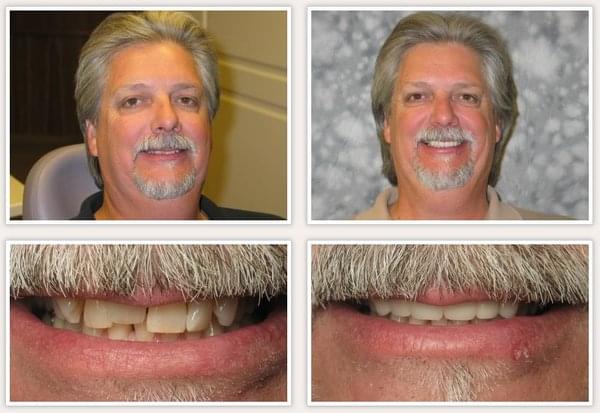 A tooth crown is a method for restoring a tooth that has decayed, worn down, or cracked and cannot be corrected with a tooth filling. In some instances an old filling may have expanded and contracted over time, causing it to separate from the tooth, which can cause the tooth to become damaged or weakened. The distorted filling eventually causes a small opening between itself and the tooth, which invariably results in decay. If the filling is not replaced by a tooth crown, the tooth may crack and bring on more serious problems and discomfort.
A tooth crown is a method for restoring a tooth that has decayed, worn down, or cracked and cannot be corrected with a tooth filling. In some instances an old filling may have expanded and contracted over time, causing it to separate from the tooth, which can cause the tooth to become damaged or weakened. The distorted filling eventually causes a small opening between itself and the tooth, which invariably results in decay. If the filling is not replaced by a tooth crown, the tooth may crack and bring on more serious problems and discomfort.
All-Porcelain Crowns
- All-porcelain crowns are translucent, like your natural teeth, so they give your mouth a consistent pearly look.
- An all-porcelain crown is custom made to fit over your natural tooth. The crown is bonded to your tooth, covering it completely, restoring its strength and function.
- Porcelain tooth crowns repair and strengthen damaged teeth, and can also be used to give a new surface to discolored or misshaped teeth.
- Porcelain crowns help stop the spread of decay and correct any structural damage.
- A strategically placed crown can also improve the alignment of your bite, thereby preventing other teeth from shifting, and more evenly distributing the pressure placed upon your teeth when you bite or chew.
- Because of the inherent smoothness of porcelain and strength of the bonding process, all-porcelain crowns increase not only the strength but also the life span of the tooth.
The Procedure
Porcelain crown placement typically involves two visits. Your tooth is prepared and shaped, and then impressions are taken and sent to a dental lab. The lab creates a model from your impressions and crafts a porcelain crown to fit over your tooth. This crown is then bonded to your tooth. Other than a little sensitivity for a few days, the procedure itself is relatively pain-free.
Caring for a Porcelain Crown
All-porcelain crowns are very strong and durable. In many instances they will outlast the biting capacity of your natural teeth, but they still require the same daily care that you give your normal teeth.
